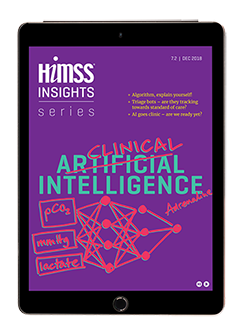
The term artificial intelligence (AI) has become a buzzword of sorts across all industries and markets. Next to self-driving cars, healthcare automation is among the first examples that people tend to give when they rave about the merits of algorithms.
If you want to look intelligent in conversations around artificial intelligence in healthcare, you can point out that there is no clear definition for the technology, that machine learning has been around for decades longer than smartphones, and that many different types of the technology exist which makes talking broadly about ‘AI applications’ mindless to a certain degree. But true as these objections are, they don’t get to the point either.
What really needs to be discussed in healthcare is use cases. Are those who code or fund healthcare-related AI algorithms really aware of the practical needs? Or is pattern recognition, where algorithms are useful, too often confused with managing complexity, where algorithms are not so useful?
While there is certainly good reason to let algorithms trawl through patient records for signs of rare diseases, for example, there is a far less compelling case for using computers in clinical symptom evaluation. Diagnosing from scratch is cool, true, but it is something that doctors are pretty good at. Hard to beat in fact. It is also a field in which pitfalls exceed missed opportunities by magnitudes.
Advancing artificial intelligence in healthcare requires practical intelligence on the side of the innovators. It requires identifying gaps instead of mimicking what works reasonably well anyway. Let doctors plan their tumor therapies. Let them read publications themselves. They know how to do it. What they don’t know is how to identify cancer patients who will benefit from immunotherapy. This is a huge gap, and it is only one example worth contemplating about. Think about screening. Think about resource allocation. Go into the details, instead of trying to heal the world in one step.
In this issue of HIMSS Insights, you will find some promising use cases. But we also pinpoint areas that need to be addressed by regulators and/or developers in order to make AI in healthcare a success story.
